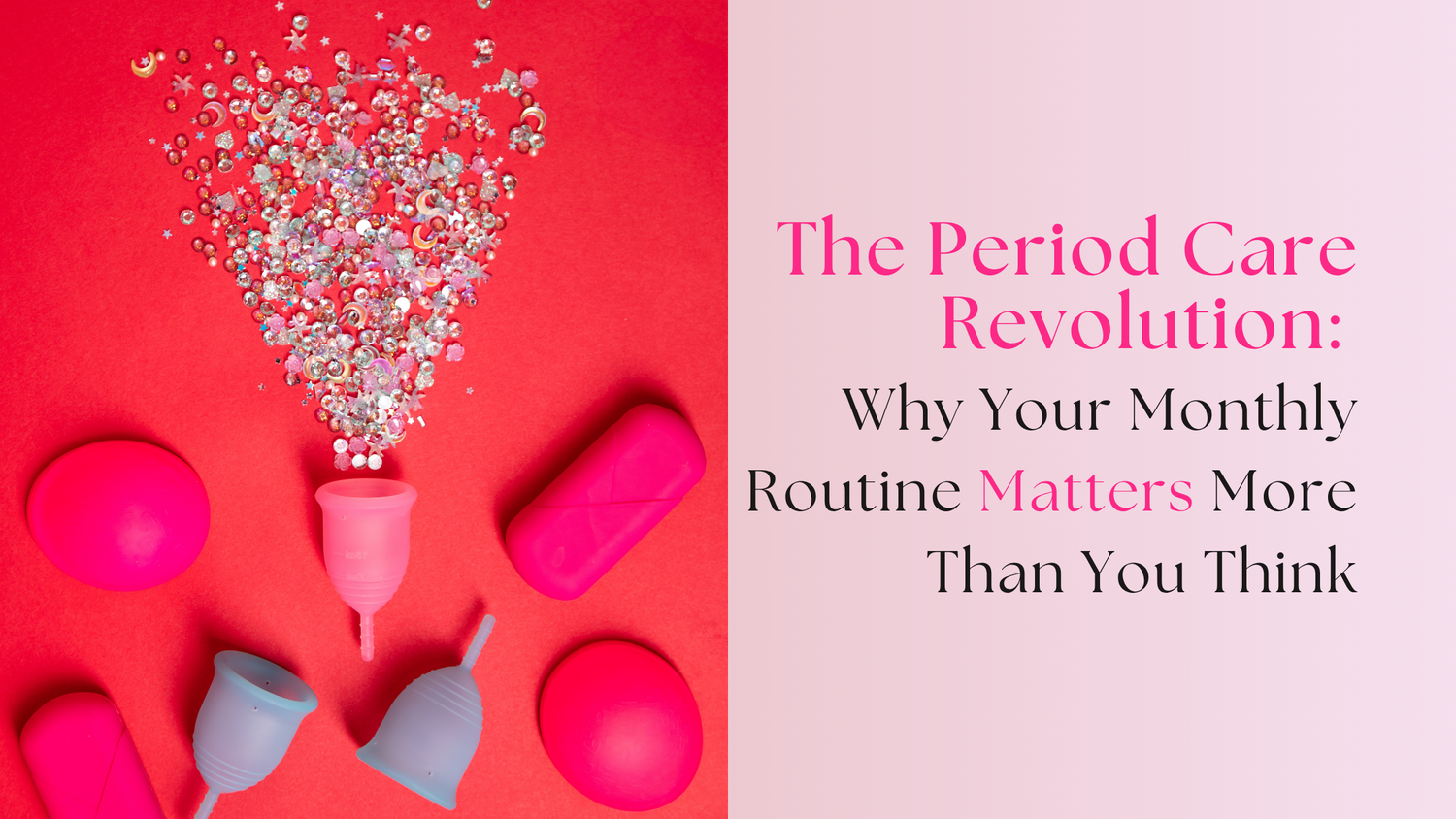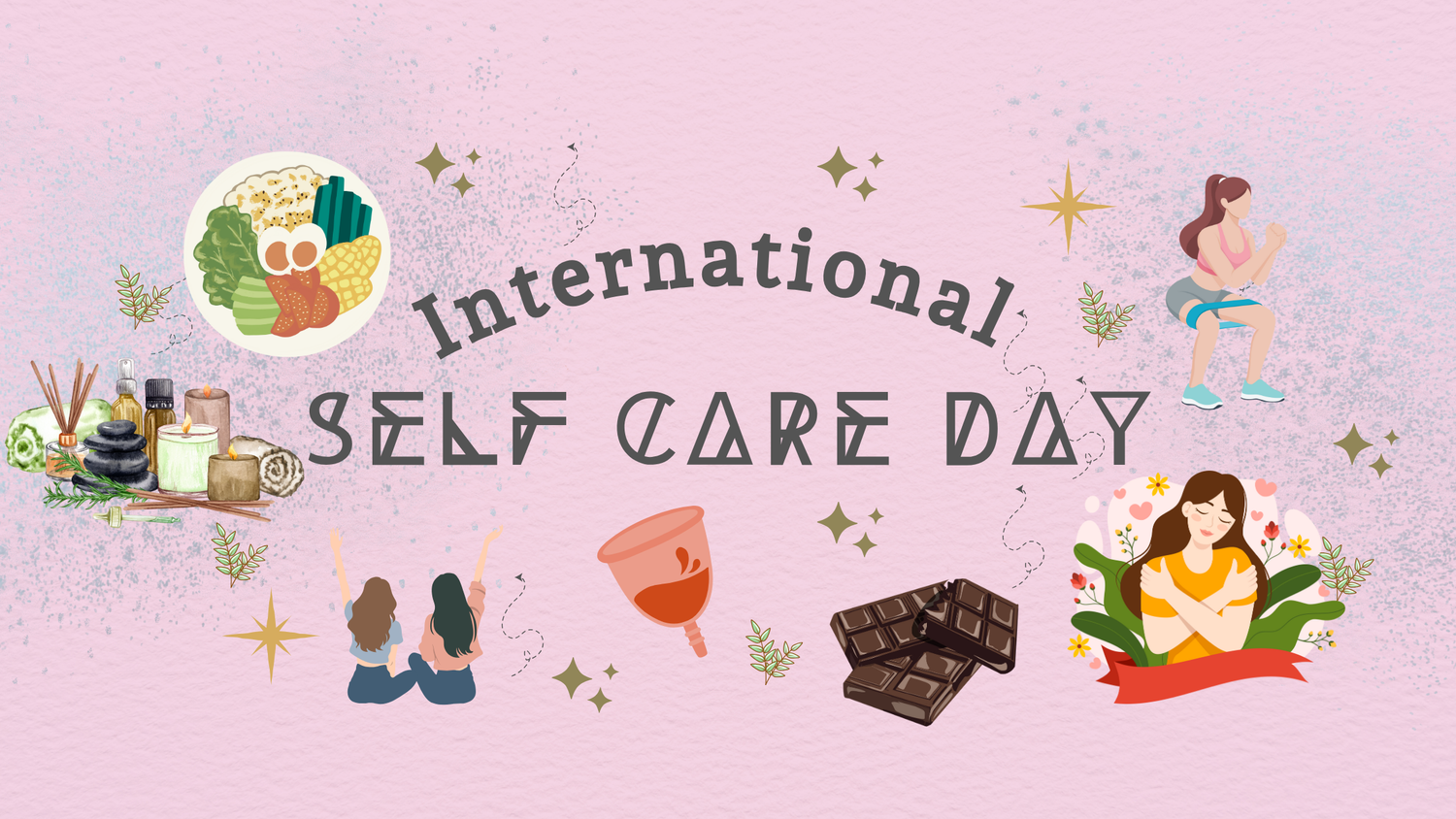If your Instagram feed looks anything like ours, you've probably seen countless self-care posts featuring bubble baths, face masks, and perfectly arranged crystals. While we love a good pamper session as much as the next person, we think it's time to talk about a different kind of self-care—one that goes far deeper than what you can see in a mirror.
As sisters who've walked the challenging path of hormonal health struggles, we've learned that true self-care isn't about what you put ON your body—it's about understanding what's happening INSIDE it.
The Self-Care Industry Got It Wrong
The global self-care market is worth over $13 billion, yet women's hormonal health issues are at an all-time high. How is this possible? Because we've been sold a version of self-care that focuses on temporary relief rather than long-term wellness.
Real self-care starts with listening to your body's signals and understanding that those monthly mood swings, energy crashes, and unexplained anxiety aren't character flaws—they're your hormones trying to communicate with you.
As Amy, our co-founder, often says: "I spent years thinking I was broken because I couldn't 'think positive' my way out of my PCOS symptoms. The real breakthrough came when I stopped trying to fix myself and started supporting my body's natural processes."
The Science Behind Hormonal Self-Care
Your endocrine system is like your body's internal messaging service, with hormones acting as chemical messengers that coordinate everything from your sleep-wake cycle to your stress response. When this system is out of balance, the effects ripple through every aspect of your life.
Let's break down what's really happening:
Insulin Resistance and Energy: When your cells become resistant to insulin, your body struggles to convert food into energy efficiently. This leads to those afternoon energy crashes and intense sugar cravings that no amount of willpower can overcome.
Cortisol and Stress Response: Chronic stress keeps your cortisol levels elevated, which can suppress other hormones like progesterone. This is why stress doesn't just affect your mood—it can make your periods irregular and your PMS symptoms worse.
Progesterone and Mood: Often called the "calming hormone," progesterone helps regulate your mood and sleep. When levels are low, you might experience anxiety, insomnia, and that "wired but tired" feeling that's become all too common.
Busting Common Hormonal Health Myths
Myth 1: "Severe period pain is normal" While menstrual discomfort is common, debilitating pain that interferes with your daily life isn't something you should have to endure. Pain is your body's way of signalling that something needs attention.
Myth 2: "You need different supplements for different symptoms" Many women end up with a medicine cabinet full of individual supplements, but hormones work synergistically. The most effective approach often involves supporting multiple pathways simultaneously.
Myth 3: "Hormonal issues are just part of being a woman" This outdated thinking has kept too many women suffering in silence. Your hormones can be supported and balanced naturally with the right approach.
Myth 4: "You can't do anything about hormonal changes" While factors like genetics and age play a role, lifestyle choices and targeted nutritional support can significantly impact how you experience hormonal fluctuations.
The Khush Place Approach: Science Meets Sisterhood
When Heidi and I started The Khush Place, we were tired of the one-size-fits-all approach to women's health. We'd both experienced the frustration of trying countless treatments, only to be told our symptoms were "normal" or "all in our heads."
Our breakthrough came when we discovered the power of addressing hormonal health holistically. This led us to develop Balance Me, a TGA-registered supplement that combines traditional botanical wisdom with modern nutritional science.
The Science Behind Balance Me:
Vitex Agnus-Castus (Chasteberry): This powerful herb works by gently modulating prolactin levels in your brain, which helps support progesterone production. Higher progesterone levels can lead to more regular cycles, reduced PMS symptoms, and better mood stability.
Melissa Officinalis (Lemon Balm): We're pioneering the use of Melissa in Australian hormonal health supplements because of its unique dual action. It supports your nervous system by modulating GABA receptors (helping with anxiety and sleep) while also providing gentle digestive support that can ease period-related bloating.
Inositol: Often called "nature's mood stabiliser," inositol is crucial for cellular communication, particularly in relation to insulin sensitivity. This is especially important for women with PCOS, but benefits anyone struggling with blood sugar regulation, mood swings, or irregular cycles.
These ingredients work together with essential B vitamins, zinc, selenium, and chromium to create a comprehensive support system for your hormonal health.
Real Self-Care Starts With Understanding Your Cycle
True hormonal self-care means becoming curious about your body's patterns rather than fighting against them. This might look like:
- Tracking your energy levels throughout your cycle to understand when to push forward and when to rest
- Noticing how different foods affect your mood and energy rather than following generic diet advice
- Recognising that your needs change throughout the month and adjusting your routine accordingly
- Supporting your body with targeted nutrition during times of increased demand
Building Your Hormonal Health Foundation
Supporting your hormones doesn't require a complete life overhaul. Start with these foundational practices:
Prioritise Sleep: Your body produces and regulates most hormones during sleep. Aim for 7-9 hours and try to maintain consistent sleep and wake times.
Manage Blood Sugar: Eating regular, balanced meals helps prevent the blood sugar spikes and crashes that can throw your hormones off balance.
Support Your Liver: Your liver is responsible for metabolising and clearing hormones from your body. Supporting liver health with plenty of water and nutrient-dense foods helps this process.
Address Nutrient Gaps: Many women are deficient in key nutrients needed for hormone production and regulation. This is where targeted supplementation can make a significant difference.
The Ripple Effect of Hormonal Balance
When you prioritise your hormonal health, the benefits extend far beyond managing symptoms. Women often tell us they experience:
- More stable energy throughout the day
- Better stress resilience
- Improved sleep quality
- Clearer thinking and better focus
- More stable moods
- Reduced food cravings
- Better skin health
This is what real self-care looks like—not a temporary fix, but a foundation for feeling your best every day.
Your Hormonal Health Journey Starts Here
This International Self-Care Day, we invite you to redefine what caring for yourself really means. It's not about perfection or dramatic changes—it's about making informed choices that support your body's natural wisdom.
Remember, you don't have to navigate this journey alone. At The Khush Place, we're here to support you with evidence-based products, educational resources, and a community that understands what you're going through.
Ready to support your hormonal health naturally? Learn more about Balance Me and discover how comprehensive nutritional support can transform your wellbeing. Join our community @the.khush.place for daily tips and encouragement on your wellness journey.





